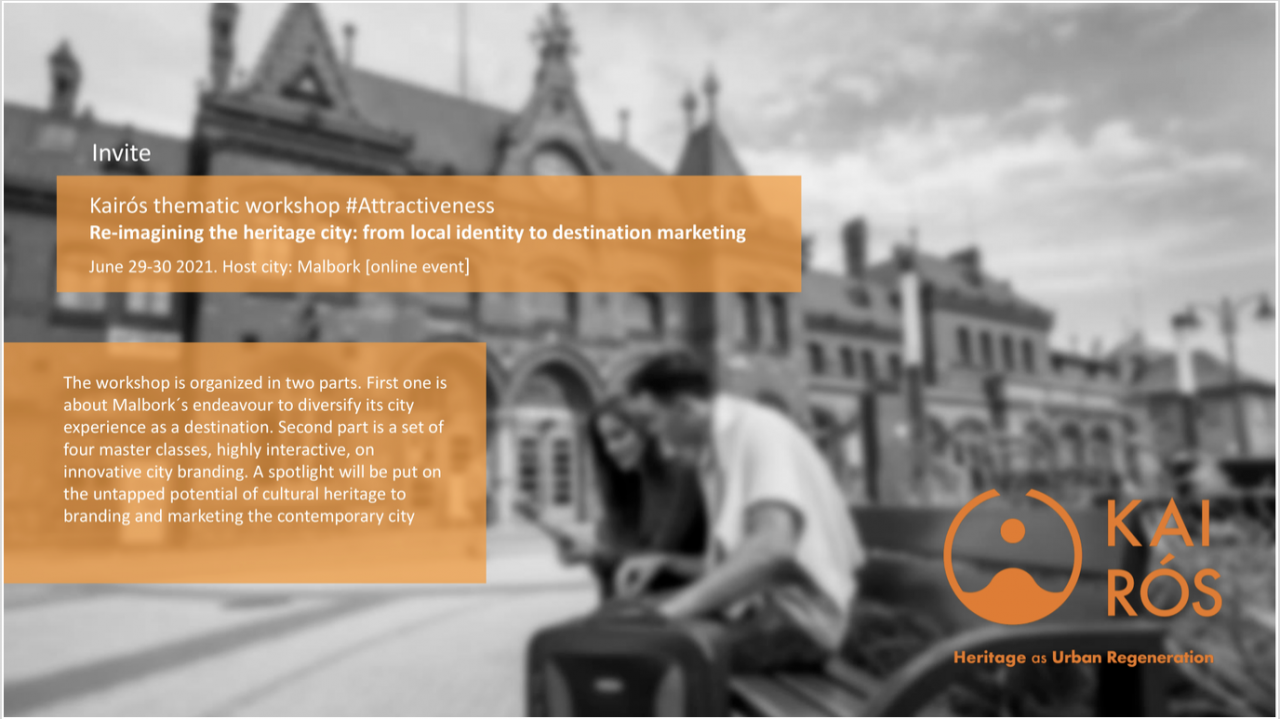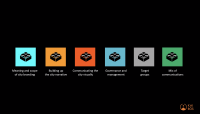
The third event in our series of thematic workshops which took place on 29 and 30 June 2021 was dedicated to the theme of “attractiveness”, one of the five pillars of the KAIRÓS project.
Cities depend more and more on their “anchor capacity” to attract investment and firms, knowledge and innovation as well as new residents and visitors. The concept closely relates to the question of how local identities are being built and at the same time, how these local identities are being communicated externally as part of a compelling city narrative. In this sense, place branding and city marketing practices provide important frameworks and techniques to tackle the communication dimension in any cultural heritage-let urban development strategy or regeneration project.
The two-day event was divided in two parts. The morning of the first day was dedicated to the host city of Malbork (Poland) and the event was officially opened by Mr. Marek Charzewski, the Mayor of Malbork. Through a lively video the 30 participants received a virtual tour of the rich cultural heritage of Malbork.
Aldo Vargas from the URBACT National Contract Point in Poland, explained four ways URBACT applies to promote sustainable urban development, including the cooperation between neighbouring municipalities, the cooperation between ‘all levels of government and local players’, and the cooperation across ‘different policy areas and departments of a municipality’.
Dr. Radomir Matczak, Malbork’s external consultant for the KAIRÓS project, explained why the city has not achieved its full heritage integration potential so far. In his opinion, it is mainly due to the low levels of social activism and the fact that the emblematic Teutonic Castle that attracts in normal circumstances up to 800.000 tourists a year, is not integrated into a wider tourism, cultural or culinary offer of the city at present. He recommended among others to better coordinate actions in the future and offer ‘regionally-sensitive education’, while at the same time encouraging civic participation.
During the afternoon session, KAIRÓS lead expert Miguel Rivas introduced the concept of city branding, specifically the importance of building a city narrative and developing a coherent branding concept. He reflected on how city branding works hand in hand with city marketing which requires the integration of different local government departments and should consider the needs of specific target groups.

Miguel Rivas continued his interactive presentation on the second day which was dedicated to the question of how to build up local identities. Architecture, stories, and people and not necessarily a visual identity are some of the main factors that constitute a city brand. Participants had been previously asked to send in pictures that best represented their city and were invited to briefly comment on them. The session ended with the presentation and joint analysis of short promotional videos of the cities of Athens, Liverpool, Amsterdam, Zurich and Lisbon.
Miguel Rivas concluded the event by summarising the key lessons learned:
- It is important to conduct a cohesive analysis of the city in order to find an overall narrative
- And cultural heritage should be part of it as much as possible.
- One should try to go beyond simple tourism when using heritage as a driver. It is important to understand the multi-faceted valorisation of heritage.
- City branding is so much more than the development of a logo and a tagline. It is important to identify a narrative first and then build the visual identity upon it.
- Cultivate uniqueness to differentiate yourself from others.
- Let the city speak for itself: try to organise a series of stories and involve your local citizens.
The next thematic workshop dealing with social cohesion is scheduled for the end of September and will be hosted by our Lithuanian partners in Urkmerge. At this stage, the KAIRÓS partners are still assessing whether the event will take place online or onsite.


